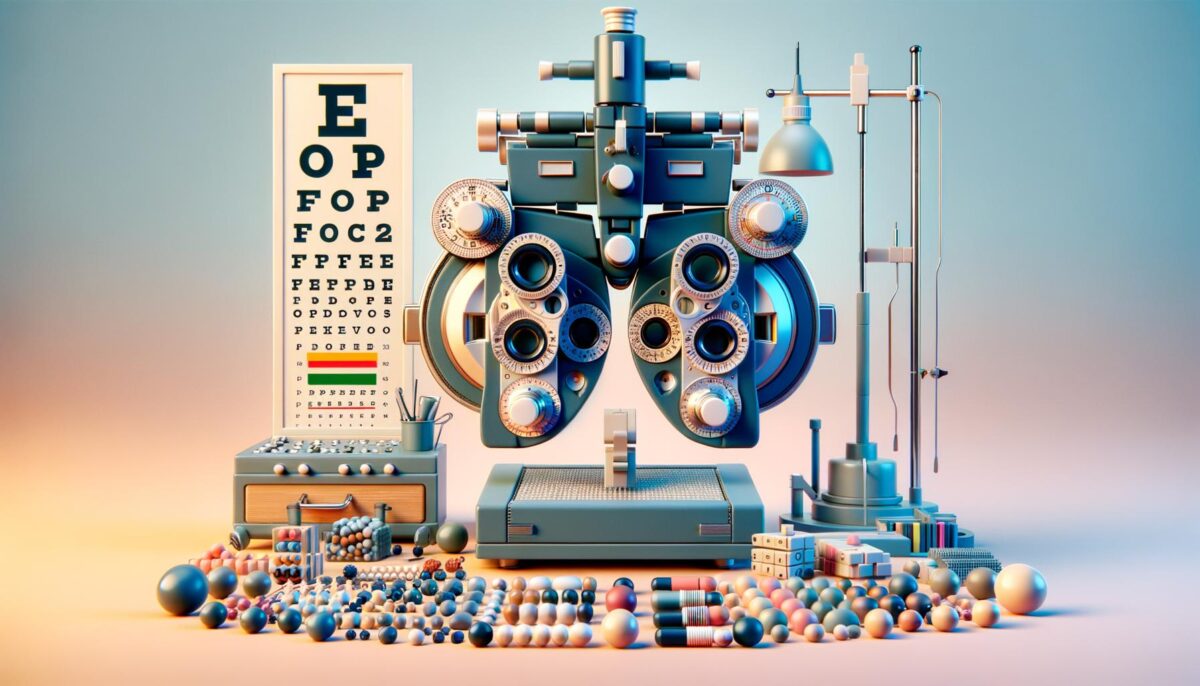The Importance of Regular Vision Tests
Regular vision tests are a vital component of maintaining overall eye health. Routine assessments allow optometrists to detect vision changes and eye conditions early, often stopping potential problems before they become serious issues. Vision tests can assess visual acuity, eye alignment, and overall ocular health. It’s recommended to have a vision test every one to two years, depending on age, risk factors, and whether you currently wear corrective lenses. Early detection through comprehensive testing can prevent the progression of conditions like glaucoma and macular degeneration, making these examinations an invaluable tool in preventive eye care.
Diving into the Different Types of Vision Tests
There are various types of vision tests designed to assess different aspects of eye health. Among the most common are:
- Visual Acuity Test: This measures the sharpness of your vision using a series of letters or symbols on a chart, typically positioned at a distance of 20 feet.
- Refraction Test: It determines your exact prescription for lenses by testing how light waves bend through the eye using a retinoscope or photoptometer.
- Ocular Motility Test: This determines how well your eyes can follow a moving object, which is crucial for tasks requiring coordination, like driving or sports.
- Perimetry Test: Also known as a visual field test, it checks for gaps in your peripheral vision, often indicative of glaucoma or brain issues.
These tests together provide a comprehensive view of your eye health, enabling personalized care.
Exploring the Convenience of Online Vision Tests
With the rise of technology, online vision tests have become increasingly popular. They offer a flexible and convenient alternative for those who may not have the time to visit an optometrist. An online vision test can measure your visual acuity or assess your suitability for contact lenses. While they offer great convenience, it’s important to note that they cannot replace comprehensive examinations performed by an eye care professional. Online vision tests are best used as preliminary assessments or tools for tracking vision changes over time rather than definitive diagnostic procedures. For accurate diagnosis and treatment options, visiting a healthcare provider remains essential.
Advancements in Vision Test Technologies
Vision test technologies have advanced remarkably over the years, improving the speed and accuracy of diagnostics. Modern equipment now includes optical coherence tomography, which allows for detailed images of the retina, helping detect conditions like diabetic retinopathy earlier than ever before. Innovations such as adaptive optics and corneal topography provide deeper insights into eye conditions, enhancing the precision with which personalized treatments can be crafted. These advancements not only streamline the testing process but also make it more comfortable for patients, ensuring a higher rate of compliance and regular check-ups.
Tips for Preparing for Your Vision Test
Being well-prepared for a vision test can help optimize the examination process. Here are some tips to consider:
- Book the appointment at a time when you are not tired or stressed, as fatigue can affect your eye’s performance.
- Bring your corrective lenses, prescriptions, and any documentation from previous eye tests.
- Rest your eyes before the test and avoid long exposure to screens which can strain the eyes.
- Inform your optometrist about any medications you are taking, as some can affect vision.
Being proactive and prepared ensures that your optometrist has all the information needed for a thorough examination, leading to more accurate results and better eye health management.
Conclusion: Embracing Vision Health Proactively
Vision tests are an essential part of maintaining eye health, allowing for early detection and treatment of potential issues. Whether you choose an in-office visit or utilize online vision tests for preliminary assessment, the key is to stay informed and proactive about your eye health. Embracing regular vision testing not only helps safeguard your eyesight but also enhances your quality of life by ensuring optimal visual performance at all times. As technology continues to advance, vision tests will become even more integrated into our routines, capturing vital eye health information with unprecedented accuracy and convenience.
